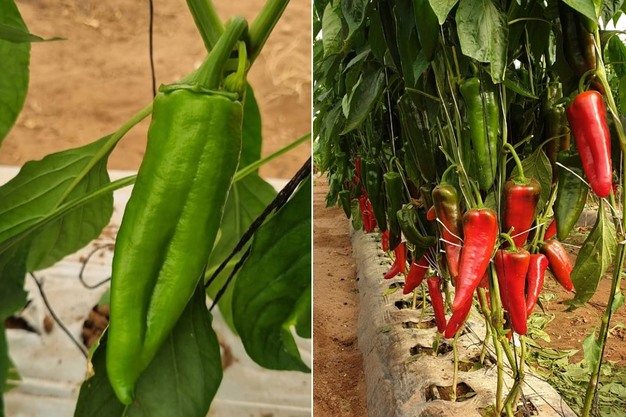The harvest of peppers in the Chtouka region, near Agadir, has just come to the end of its peak, says Obeida Mansour, CEO of Universal Peppers.
The grower says, "We reached peak harvest in January-February, a month earlier than usual, due to the higher temperatures this year. Climate change has had a big impact on the season, as the harvest peak came earlier than usual despite a late start to the season."

Obeida continues, "We have also seen that harvested volumes during the peak are lower than last season, which is also attributable to the weather."
The TSW and PMMV viruses continue to take a toll on peppers in Morocco, says Obeida. "The damage varies from one grower to another. At Universal Peppers, we're lucky in that only around 800 of the 22,000 plants per hectare have been affected, and we're pulling them out as soon as they are found."
Foreign demand for Moroccan peppers is also unusually slow, says the producer. "Restrictions on the entry of Moroccan produce into West African markets are certainly a factor. Also, European demand has weakened due to the warmer weather in Europe."
Moroccan Peppers' season should continue until June, if no unforeseen developments occur, and a second peak of harvest could be achieved, says Obeida. "If temperatures remain stable until the end of the season, ranging from 25 to 32 degrees in daytime and between 15-20 in the night, there will certainly be a second harvest peak."
Despite these difficulties, the producer says he intends to keep the same acreage of peppers for next season. He concludes, "The complications at the start of the season have influenced its course, but the damage is not catastrophic and we hope for a smooth start next season."
For more information:
Obeida Mansour
Universal Peppers
Tel: +212663612461
Email: Obeida@universalpeppers.ma
